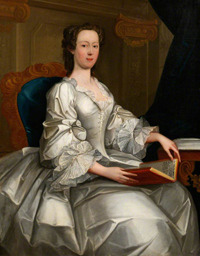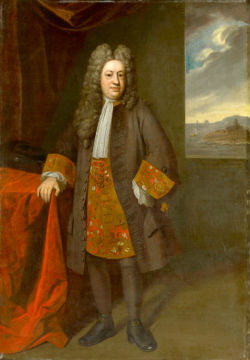Welsh philanthropists: ten of the best (part one)
Think Wales doesn’t have a background of philanthropy? Think again.
In the first of this multi-part blog, the Catalyst Cymru-Heritage Fundraising team look at some of Wales’ most famous philanthropists, celebrating the achievements and difference people both historical and modern day have made to Wales and beyond through their generosity.
First up we’ve got a woman who helped transform literacy in Wales and, to stir up a bit of debate, we’ve included a North Walian-American rough diamond for good measure. You’ll also find included a few tips on how they might inspire you onto your own fundraising successes.

Bridget Bevan (1698-1779) was a philanthropist from Carmarthenshire, who played a major role in establishing the Welsh Circulating Schools System, which turned Wales into one of the most literate nations in Europe.
In the 1730’s, together with support from local Anglican preacher Griffith Jones, (1684-1761) she established the innovative Welsh Circulating Schools system at a time when there was no compulsory education in Wales and most people could neither read nor write. The schools circulated from parish to parish, teaching people to read, three months at a time. Teaching was through the medium of Welsh and was based upon biblical texts.
Bevan became chief patron and advisor to Jones and poured her wealth into funding more circulating schools. By the time of her death in 1779 it is estimated over 300,000 people had attended a circulating school at one time or another, giving Wales one of the highest literacy rates in Europe. Jones’ vision supported by Bevan’s philanthropy ‘fundamentally altered the landscape of Welsh education, spreading literacy to all corners of the country’. (Philanthropy Wales). A gift of £10,000 in her will allowed the schools to flourish until 1854.

Elihu Yale (April 5, 1649 – July 8, 1721) was a Welsh-American merchant and philanthropist, Governor of the East India Company at Madras and a benefactor of the Collegiate School in the Colony of Connecticut, which in 1718 was renamed Yale College in his honor. He is possibly the most controversial inclusion in our top Welsh philanthropists.
After 20 years of service for the British East India Company, Yale become the second governor of Fort St George in 1687, the company’s post at Madras (now Chennai), India. Yale amassed a fortune while working for the company, largely through secret contracts with Madras merchants, against the East India Company’s directive. By 1692, Yale’s repeated flouting of East India Company regulations and growing embarrassment at his illegal profiteering resulted in him being relieved of the post of governor.
Yale returned to Plas Grono, a mansion bought by his father near Wrexham, spending liberally the considerable wealth he had accumulated. He is best known for his philanthropic connection to the world famous Yale College.
In 1718, Cotton Mather contacted Yale and asked for his help. Mather represented a small institution of learning that had been founded in 1701 in New Haven, Connecticut, as the Collegiate School of Connecticut, which needed money for a new building. Yale sent Mather a carton of goods that the school subsequently sold, earning them £800, a substantial sum in the early 18th century. In gratitude, officials named the new building Yale; eventually the entire institution became Yale College.
As with many great philanthropists Yale’s legacy is controversial. His tomb in the churchyard of the parish church of St Giles in Wrexham is inscribed with these lines:
Born in America, in Europe bred
In Africa travell’d and in Asia wed
Where long he liv’d and thriv’d; In London dead
Much good, some ill, he did; so hope all’s even
And that his soul thro’ mercy’s gone to Heaven
You that survive and read this tale, take care
For this most certain exit to prepare
Where blest in peace, the actions of the just
Smell sweet and blossom in silent dust.
However debatable his legacy, his gift to Yale is still appreciated 300 years later and is central to the University’s fundraising efforts. Every November Yale holds ‘Elihu Day’, when students at the University stop to write personal thank-you cards to donors.The event is sponsored by the Yale Alumni Fund to recognise alumni, parents, and friends who help the university meet its most essential needs—from scholarships and faculty support to collections and facilities. We think it’s a wonderful example of how to build a relationship with and care for your donors.
Do you agree with our picks? Who do you think should be in the parts to come? Check back next week for our next set of amazing Welsh philanthropists.
Catalyst Cymru-heritage Fundraising is an Heritage Lottery Funded project to help Welsh heritage organisations improve their fundraising success. It is open to all staff, volunteers and trustees within the heritage sector in Wales including:
- Historic environment
- Landscape and natural heritage (historic gardens, wildlife, woodland)
- Industrial, maritime and transport
- Museums, libraries and archives
- Intangible heritage (such as the preservation of memories, or oral history projects)
 robertsrich liked this
robertsrich liked this wcva posted this
